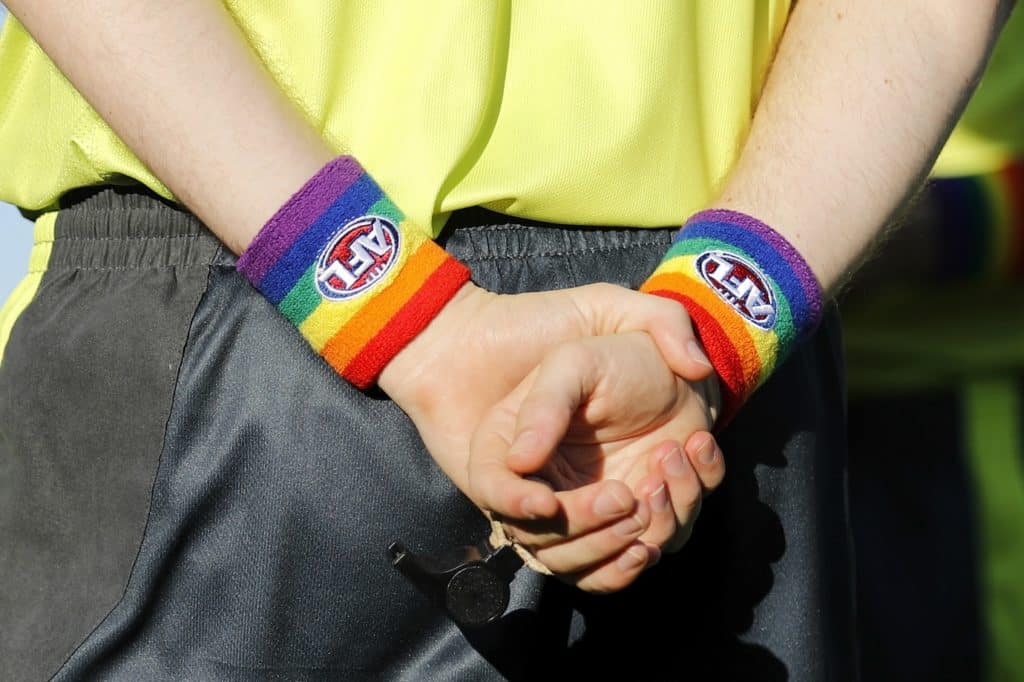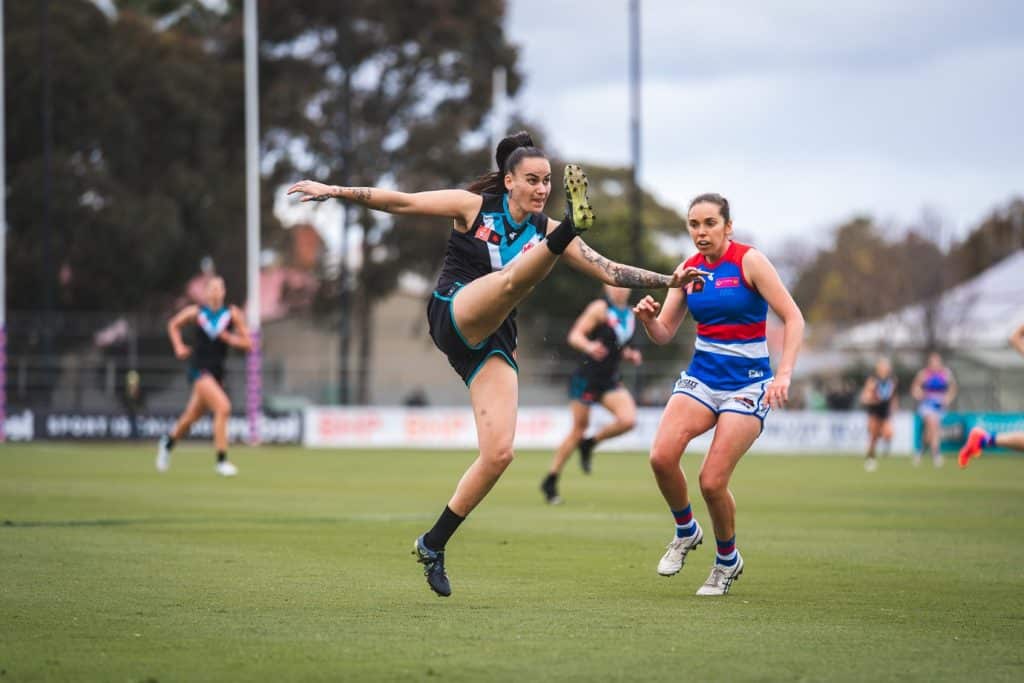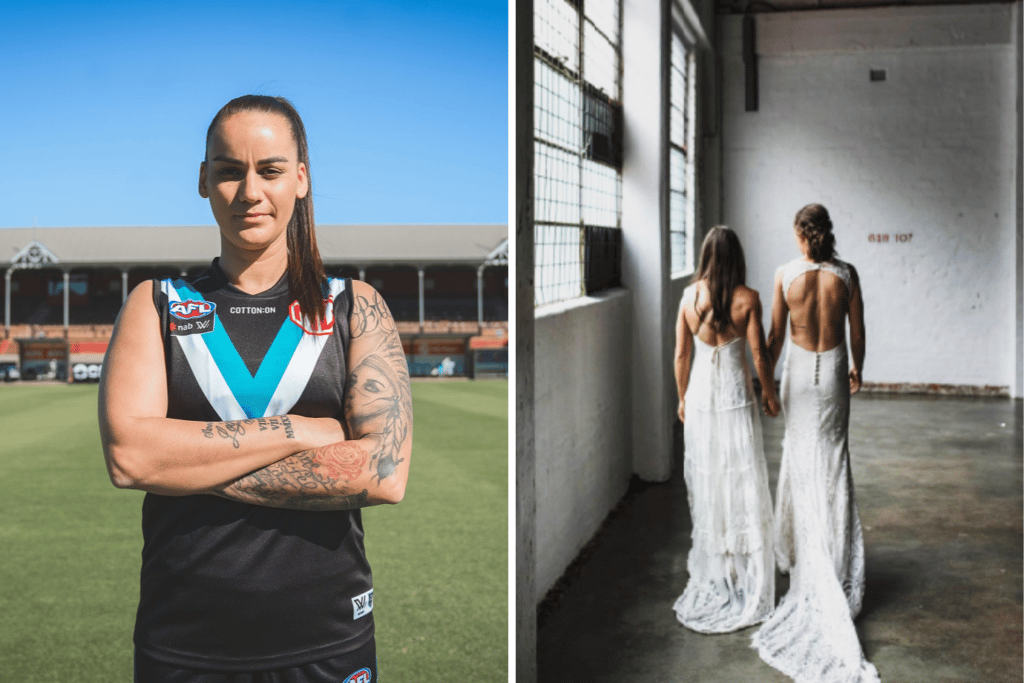It’s easy to forget just how far we’ve come in sport within a few short years.
In under a decade, we’ve seen significant progress on the representation of women, the embrace of First Nations people and cultural diversity, and the important inclusion of the LGBTQI+ community.
We’re far from the finish line, but reflecting on what’s been achieved shows us what’s possible and what we should expect from the next decade and the one after that.
Some codes of course have come further than others, and the AFLW’s commitment to inclusion is ever-building and led with true conviction.
Executive General Manager Inclusion and Social Policy, Tanya Hosch says that’s because celebrating and championing diversity is critically important for everyone involved—players, fans, and all those in between.
“Having representation matters. One of the strengths of the NAB AFLW competition is that many players, coaches, and members from the wider football industry are proud to embrace their identities and are open to share this with the league and its fans,” she says. “The AFL is on a journey to being more inclusive and continues to actively consult and build an understanding of what it means to be a sport for all.”
This commitment will be bolstered over the weekend as fields, flags, guernseys and socks turn rainbow in celebration of the annual NAB AFLW competition’s Pride Round.
Running from October 14-16, it’s the third time the NAB AFLW competition will hold a dedicated Pride Round, embraced by all 18 teams including Essendon, Hawthorn, Port Adelaide, and Sydney Swans which joined this year.
All AFL Field and Boundary umpires will wear rainbow-coloured sweatbands, while Goal umpires will exchange their traditional white flags for Progress Flags, acknowledging trans-visibility and people of colour.

Port Adelaide star, Gemma Houghton describes it as a “fantastic platform” and a meaningful exercise for anyone—especially kids—who might be struggling with their identity.
“We see so much representation this weekend and see young kids who might be struggling with their sexuality. I think it’s a fantastic platform for them to feel accepted, and not judged for being who they really are,” she tells Women’s Agenda.
“I think it just shows that we take a stand. And obviously, everyone’s more powerful together when we stand united.”
Responding to opinions of certain commentators who deride dedicated inclusion rounds as “woke politics gone mad”, Houghton simply shrugs.
“I think we should use the competition to have a voice for minority groups. And it just makes sense to use football in a positive way”, she says.
She notes that overwhelmingly, players support the AFLW’s pledge to inclusion.
“As athletes, we always say that footy is about more than playing the game. It’s about the connection with fans, with each other, and about being accepted for who you are.
“The movement that it’s [The AFLW’s] already had and the impact it’s had on the community. I think it’s so visible and so widespread that it’s almost a universal language. And it connects people from all over the world with the messages that it brings,” she adds.

Houghton also credits trailblazing queer players for their courage in showing the world who they are. And of course, Kara and Ebony Antonio’s story is one that stands out.
Hailing from Perth, the couple first met at Swan Districts in the WAFLW. They were engaged soon after when Kara popped the question, before tying the knot in 2019 to become the first married couple to play in the AFLW competition.
Houghton, who attended and took part in the ceremony as a bridesmaid for Ebony, says the pair epitomise inclusion in the game.
“They just paved the way through their actions and how they include everyone” she says, adding that the pair are “definitely trailblazers in the competition and for the community.”
Outside of Pride Round, the AFL continues to champion progress through its ongoing partnership with not-for-profit organisation Pride In Sport and its support of the National Gallery of Victoria’s recent Queer Exhibition.
The league also established an inaugural Pride and Allies Committee, delivering LGBTQI+ education sessions for its staff and all 18 AFLW Clubs alongside Pride Cup, Proud 2 Play and Pride In Sport.
“We want all people to feel welcome in our game, as players, fans, members and officials,” says Hosch. It’s that simple.


